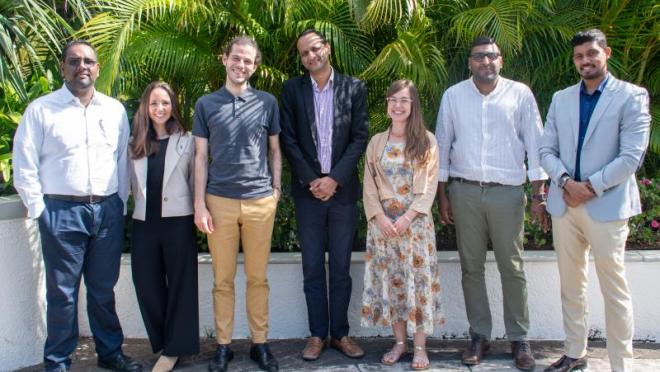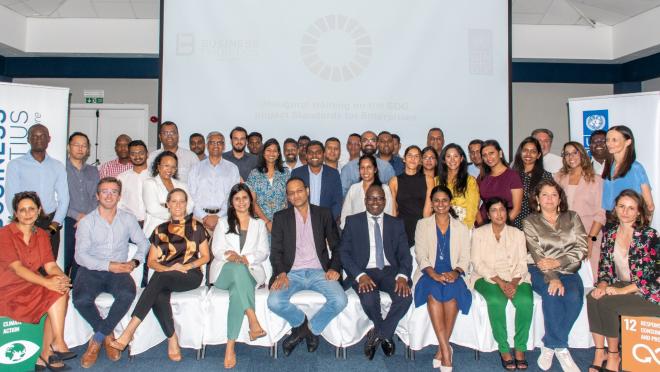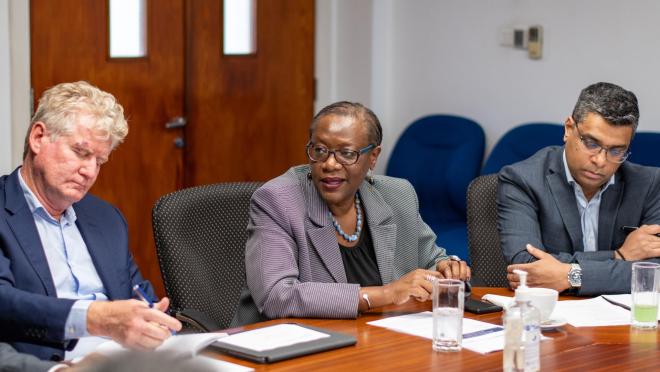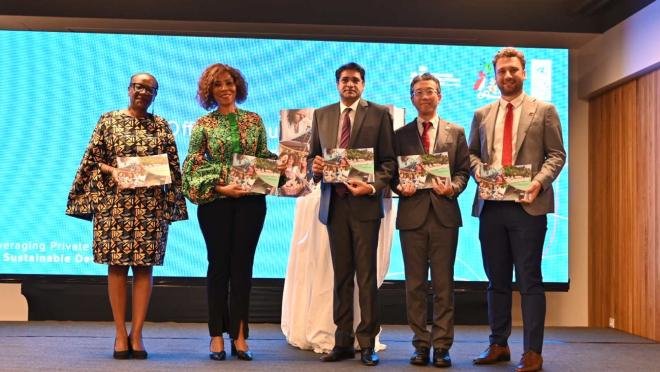Mauritius became a High-Income Country in July 2020 based on 2019 data. However, it slipped back into Upper-Middle-Income status in 2021 due to the impact of the Covid-19 pandemic. Despite the successful handling of the public health emergency, the economic impact was severe and GDP contracted by 14.9 percent in 2020. An extensive state support package was effective in protecting livelihoods but came at high fiscal cost. Fiscal deficit escalated to 19.9 percent in FY20/21, and despite being partially financed through a 12.6 percent of GDP non-refundable Central Bank transfer, still caused public debt to spike to 100.6 percent of GDP. The effects of COVID-19 have reversed recent gains in poverty reduction and women’s labor force participation.
Real GDP grew by an estimated 3.9% in 2021, although subsequent COVID-19 waves dampened growth and output remains below pre-pandemic levels. A successful Covid-19 vaccination campaign resulting in 76 percent of the population being fully vaccinated by end-February 2022 has been a cornerstone of recovery. However, a large output gap remains in tourism, where arrivals decreased by 41.8 percent in 2021 compared to 2020. Even after full reopening of borders since October 1, monthly arrivals hovered below 50 percent of pre-pandemic figures. As imports grew faster than exports in 2021, the trade deficit widened by 39.4%, but the current account deficit still narrowed from 12.5 to 11.1% of GDP, aided by net income inflows. Headline inflation rose to 4% in 2021 from 2.5% in 2020, driven by external supply shocks resulting in higher freight, energy, and food prices. As oil prices rose to historical heights in the wake of the Russian invasion of Ukraine and ensuing sanctions on Russia, the Bank of Mauritius raised the Key Repo Rate 15 basis points to 2% from the historical low of 1.85 where it had been since April 2020, representing its first hike since June 2011. The removal of Mauritius from the FATF, UK and EU watchlists between October 2021 and January 2022 bolstered the financial sector, and following closing of the Mandatory Offer made by Airport Holdings Limited on October 15, 2021, the state-controlled entity expects to fully control Air Mauritius by end-March 2022. Poverty (Upper-Middle-Income Countries’ threshold of $5.5 a day 2011 PPP) fell from 18 to 10% between 2012 and 2019. However, given the dramatic contraction of GDP in 2020, poverty is estimated to have increased by over 5% points in 2020, subsequently dropping by over 1 point in 2021.
Source: World Bank, Mauritius Country Overview
Access the Mauritius SDG Investor Map prospectus and summary report here and here.
17
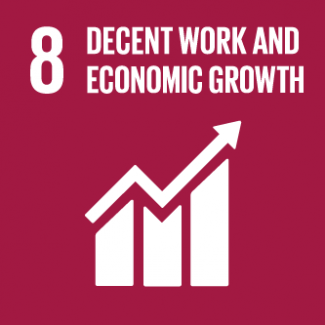
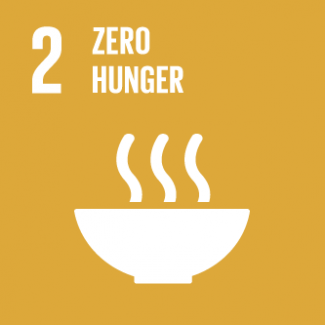
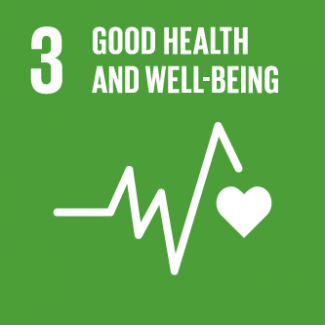
Infrastructure, Food and Beverage, Renewable Resources and Alternative Energy
0.804
How is this information gathered?
SDG Investor Maps employ an 8-step methodology, combining data research and stakeholder consultations to identify Investment Opportunity Areas (IOAs) and potential business models with significant financial and impact potential.
Disclaimer
UNDP, the Private Finance for the SDGs, and their affiliates (collectively “UNDP”) do not seek or solicit investment for programmes, projects, or opportunities described on this site (collectively “Programmes”) or any other Programmes, and nothing on this page should constitute a solicitation for investment. The actors listed on this site are not partners of UNDP, and their inclusion should not be construed as an endorsement or recommendation by UNDP for any relationship or investment.
The descriptions on this page are provided for informational purposes only. Only companies and enterprises that appear under the case study tab have been validated and vetted through UNDP programmes such as the Growth Stage Impact Ventures (GSIV), Business Call to Action (BCtA), or through other UN agencies. Even then, under no circumstances should their appearance on this website be construed as an endorsement for any relationship or investment. UNDP assumes no liability for investment losses directly or indirectly resulting from recommendations made, implied, or inferred by its research. Likewise, UNDP assumes no claim to investment gains directly or indirectly resulting from trading profits, investment management, or advisory fees obtained by following investment recommendations made, implied, or inferred by its research.
Investment involves risk, and all investments should be made with the supervision of a professional investment manager or advisor. The materials on the website are not an offer to sell or a solicitation of an offer to buy any investment, security, or commodity, nor shall any security be offered or sold to any person, in any jurisdiction in which such offer would be unlawful under the securities laws of such jurisdiction.

















